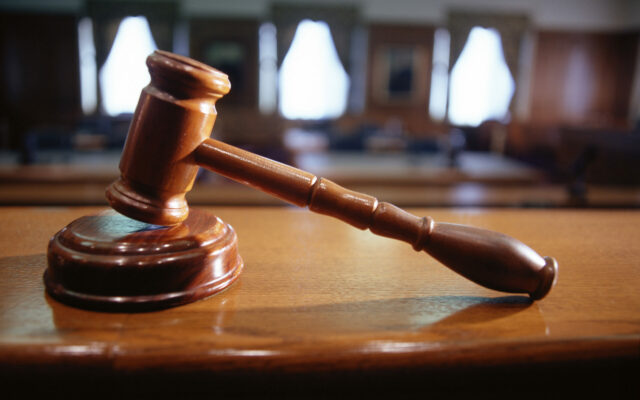Government seeks to ban Capitol riot defendant from vlogging

The government has moved to block Capitol riot defendant Anthime Gionet — an alt-right internet provocateur known as “Baked Alaska” — from posting videos online after they say he live-streamed himself calling police and threatening his friend.
Federal prosecutors said the streaming video was used to raise money, which Gionet’s attorney acknowledged. In a Wednesday filing, prosecutors asked the court to modify his conditions of release to put him on house arrest, require him to report every contact with law enforcement, ban him from possessing firearms and ban him from posting videos online.
The request was prompted by a report from Pretrial Services, which manages defendants who are released before trial and which alerted the court to the video. A status hearing in the case is scheduled for today at 4 p.m.
In the video cited by prosecutors, Gionet can be seen calling police twice on an intoxicated friend after he bats Gionet’s phone out of his hands. After police arrived, Gionet was “somewhat uncooperative with them,” the filing said.
Throughout Gionet’s encounter with police, he continues to live-stream and waffles about whether he’d like to press charges. He tells police his friends were in town “to stream, to make content.”
Prosecutors said that in the video, Gionet appeared to threaten his friend, although they don’t specify which comments they’re referring to. At one point in the video, Gionet says of his friend, “He is a little p***y a** b****. He won’t box me. I would gladly beat his f***ing a**.”
After police are called a second time, they warn Gionet not to continue antagonizing his friend, and urge him to go home and “leave the city bounds.” An officer tells him, “If you have a problem, you call someone else, because if I come back again, I’m bringing you straight to jail.”
During the interaction with police, Gionet tells an officer he is facing a pending trial. “I don’t know if that’s relevant information to you,” he said, explaining that he is a Capitol riot defendant. “The Capitol thing — did you see that? Yeah, I was there,” he says.
For his alleged role at the Capitol on January 6, Gionet faces two charges of knowingly entering or remaining in a restricted building or grounds and violent entry and disorderly conduct on Capitol grounds.
Prosecutors say he live-streamed himself for approximately 27 minutes while inside the Capitol on January 6, and could be heard on video repeatedly encouraging other protesters not to leave. At one point in the video, he accused a law enforcement officer of shoving him, though no shoving could be seen on the video, prosecutors said. He said to the officer, “You’re a f***ing oathbreaker you piece of s***.”
He had been released on his own recognizance and is subject to GPS monitoring.
Gionet, a well-known figure in the alt-right who participated in the “Unite the Right” rally at Charlottesville in 2017, previously worked at BuzzFeed. His former colleague Ben Smith, now a New York Times columnist, described Gionet’s descent into alt-right politics as “the story of a man being rewarded for being a violent white nationalist, and getting the attention and affirmation that he’s apparently desperate for.”
Gionet’s attorney argued in a Thursday court filing that the government had mischaracterized the events of Gionet’s recent video, and said his client had not been agitating members of the public.
“The government is correct in their response that Mr. Gionet was streaming to bring in revenue for his long-established career doing so,” his lawyer argued. “This counsel fails to distinguish between mainstream media who puts out or generates content solely for the purpose of raising money though (sic) ad sales and Mr. Gionet’s attempts to do the same.”
The government also argued that Gionet knowingly rode in a car with a drunk driver, although Gionet’s attorney said the video prosecutors cited in their filing does not show evidence of that.
“Counsel believes the government did not purposely make a misstatement but may have misconstrued what is in the video,” his lawyer wrote.



